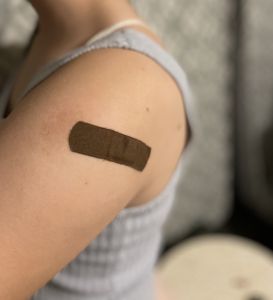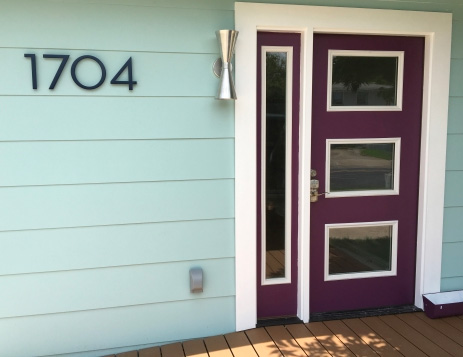Bandaids, and the systemic racism inherent in a single “skin color” option, is an example most are familiar with, right? But knowing it intellectually is very different from experiencing it firsthand.
A couple weeks ago, my whole family got our Covid boosters, and each of us received a bandaid that was a very different shade from our skin color. Every time it caught my eye, I had a little moment of thinking about skin color, belonging, and default bodies.
I certainly grew up in a community where my white skin was the “default.” White was considered normal, and anything else was the exception. Other elements of me were not the default, but I didn’t even know what that meant until recently. Sonya Renee Taylor’s book “The Body is not an Apology” taught me the concept of a default body. The default body is a social construct that Taylor defines as “the body we see in the world as the most valuable.” Generally speaking, we consider bodies that have white skin, and are thin, able-bodied, neurotypical, and cis-gendered to be the default.
When your body matches the default, it’s easy not to even realize that there is a default. Seats are built for you, you never have difficulties accessing things like shelves, public bathrooms, or steps, you can walk in any clothing store and buy something that fits, social and academic situations are designed for your success, and your gender identity or skin color doesn’t cause other people to assign low value or bad intent to your actions. But when you don’t match the default, you’ll have regular experiences big and small that send a message to you that your existence is wrong. You are wrong.
Except that you aren’t. There isn’t a default body.
Bodies come in a variety. Period. Plus, the ironic thing is, most of us have something that doesn’t fit the default. But until we get better at recognizing and challenging ‘default body moments,’ our society is going to continue to be set up to treat some as more valuable than others. Parents can be powerful at seeing their child’s unique needs, and embracing their role as advocate for that child’s particular needs. Today, I am inviting you to expand that awareness and advocacy, and look for moments where you can disrupt the system, making the world more inclusive and accepting of all bodies everywhere. I want that for you, for me, and for all of our children.









